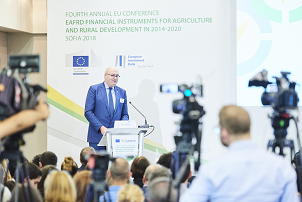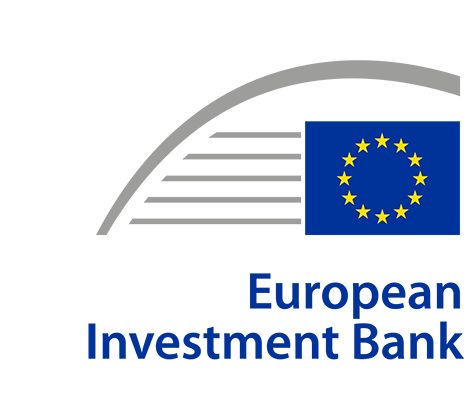New opportunities for rural development financial instruments in Europe

Simplified rules and a broader remit for financial instruments were among the key topics presented during our ‘Fourth annual EU conference on EAFRD financial instruments for agriculture and rural development in 2014-2020’ that took place in Bulgaria from June 5 – 6. Over 200 delegates participated in the conference and these included managing authorities of the European Agricultural Fund for Rural Development (EAFRD), financial intermediaries interested in using EAFRD financial instruments, experts from the European Commission and European Investment Bank Group, as well as a variety of other EAFRD stakeholders.
Phil Hogan, European Commissioner for Agriculture and Rural Development, opened the conference, alongside other high-level speakers such as Rumen Porodzanov, the Bulgarian Minister for Agriculture, Food and Forestry, Andrew McDowell, Vice-President of the European Investment Bank (EIB), and Pier Luigi Gilibert, Chief Executive of the European Investment Fund (EIF).
Commissioner Hogan highlighted how EAFRD financial instruments can help to address investment gaps in rural Europe noting that, “The Common Agricultural Policy reforms that I have just announced emphasise the possibility for financial instruments to play a big role in capital investments, in working capital, and in developing our rural areas.” The Commissioner drew attention to the importance of affordable credit to help young farmers set-up in business and he underlined how recent legislative changes can help to mobilise more money from the EIB in support of the EU’s Common Agricultural Policy (CAP).
Andrew McDowell, Vice-President of the EIB, described the EIB Group’s role in supporting Europe’s rural economy, such as through advisory services for financial instruments that will help Rural Development Programmes (RDPs) “to do more with less” by making “scarce public money go further in supporting farmers and agri-businesses.”
Josefine Loriz-Hoffmann, Director at DG AGRI, informed the fi-compass audience about simplified administrative procedures in the CAP reforms that will have a positive impact on EAFRD financial instruments. Further details of these reforms presented by Michael Pielke, Head of Unit at DG AGRI, raised awareness about EAFRD options for the new InvestEU initiative and how the new opportunities for EAFRD financial instruments can provide “very targeted solutions” adapted to specific investments needs for RDP territories.
Experience from the ground
Much of conference agenda was arranged to share useful experiences from managing authorities and financial intermediaries about practical solutions for implementing different EAFRD financial instruments. These included: a review of control and audit procedures used by Estonia’s EAFRD loan fund; ex-ante assessment findings from a new fi-compass EAFRD case study featuring Germany’s Mecklenburg-West Pomerania region; lessons learned in Italy from the Lombardy region’s Credit Fund and the multi-regional agri-platform ‘Garanzia Agri’; Bulgaria’s experience with a financial instrument that helped to increase access to finance for smaller-scale farms; and Croatian forecasts for financial instrument investments that are expected to help the managing authority reach significantly more final recipients than is predicted through grants alone.
Other pioneering new approaches to using RDP financial instruments were presented from Poland and Andalusia region during the conference. Here, EAFRD managing authorities are investigating options for combining the European Fund for Strategic Investments with EAFRD resources to gain greater leverage from their RDP budgets.
Video recordings of all the conference presentations and panel session discussions will be available soon on the fi-compass website.

